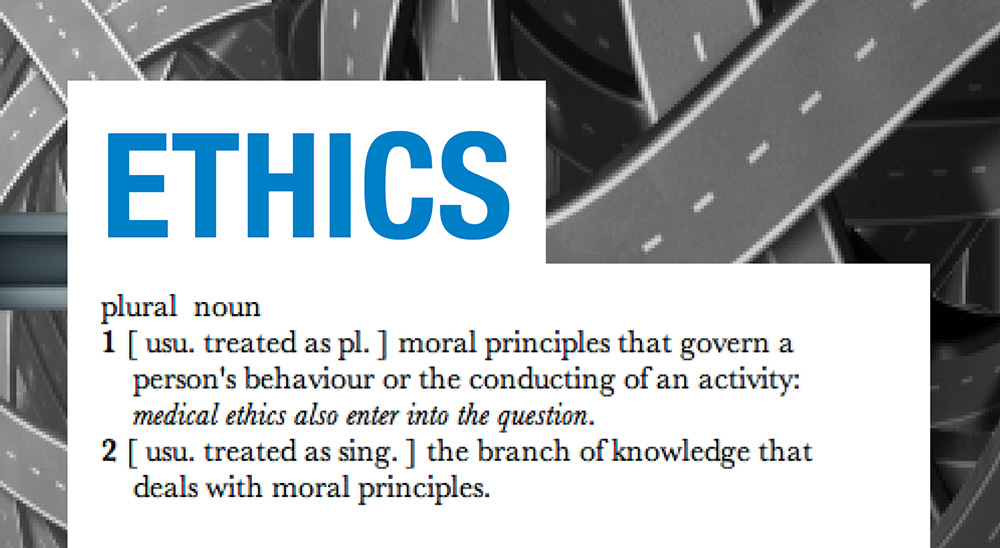
There is a scene near the end of The Blindside movie where Sandra Bullock’s character says to her son as he is about to start university, “Michael – if you get a girl pregnant out of wedlock, I will cut off part of your body.” (The actual quote is more explicit in specifying what part of his body will be surgically removed.) People laugh because we can relate to a parental morality that seeks to enforce prohibition with threats.
While some of that undoubtedly still goes on, I see a more relaxed attitude reacting against the old social norms. Young people are parented by a generation who do not accept there were consequences to their own decisions, and are more than willing to turn a blind eye to the behaviour of their children when they believe that they know better than the law. So we moderate the rules on what children can watch and play, tolerate a culture that disregards regulations on youth driving and facilitates a pattern of underage drinking.
This idea that we are exempt from the rules affects us all. I play fast and loose with the baggage allowances on domestic and international flights on a scale that, if copied by all passengers, would result in the majority of flights running out of fuel short of their destinations.
It is not getting any easier to make decisions. Consider just a few of the questions I have been asked by Christian students in NZ: “What’s the problem with having a threesome?” “What do you think of the idea of working as an escort to pay for uni?” “I know the university says it’s wrong, but where does the Bible say you shouldn’t pay someone to do an assignment for you?”
These are at the more extreme end of the spectrum but behind them stands a student body that struggles to live in community, that has embraced a morality of unrestrained self expression, hyper tolerance and personal fulfillment at virtually any cost.
How do we help Christian students make moral choices? The arguments around contemporary issues such as euthanasia and same-sex marriage marginalise the idea that the Bible has anything relevant to contribute. The premises of a faith-based worldview seem to negate the value of that person’s contribution to a debate.
There are two important strands to help students honour God and extend His kingdom, so they become Good News catalysts in their communities and salt and light in the world.
The first is to recognise that God is intimately involved in the world. The earth is the Lord’s and everything in it. God is working out His purposes through history for His people. So there is an urgency to proclaim the good news of the gospel in word and deed, to make disciples, and to embrace the agenda of justice, peace and equality that will characterise the kingdom to come.
This recognition comes through knowing God through Jesus and living by His Spirit. An appreciation of God’s closeness helps us understand that everything we do is either sin or worship. It is not enough to ask, “What is that wrong with that?” We need to consider, “What is for the very best in this?” and to work that through in relationship with God.
So Joseph turns down sex with Potiphar’s wife, both in regard for his master and in understanding that to commit adultery would be a “sin against God.” God’s character as revealed in His word is the basis for the moral absolutes given to His people through history.
So we need to explore not just WWJD (“what would Jesus do?”) but WDJD (“what did Jesus do?”) WDJS (“what did Jesus say?”) and the not-quite-as-catchy HDTFWJPFH (how does this fit with Jesus’ plan for humanity?) Inevitably, this will counter the spirit of the age.
The second strand is helping students to use their freedom well. Jesus sets us free from a life of rules and regulations. We live in new relationship with Him and in new community with each other. Paul, writing to the believers in Corinth, helps them work through the responsible use of freedom: “Everything is permissible for me but not everything is beneficial.”
In 1 Corinthians 6, 8 and 10 he gives three pointers to decision making. Firstly, he says that we will choose to not do things that lead us into slavery. “Everything is permissible for me – but I will not be mastered by anything” (1 Corinthians 6:12).
He applies this to food and sexual morality but it relates to all our physical appetites. When anything begins to control us, if we cannot live without it, we need to take radical action.
Secondly, he says that we will choose to not do things that lead our brother or sister into sin. “Be careful, however, that the exercise of your freedom does not become a stumbling block to the weak” (1 Corinthians 8:9). We choose to limit our freedoms. We recognise that we have different capacities, personalities and backgrounds. There are situations where I will choose to alter my behaviour because of the company I am in. This is not being untrue to ourselves; it is being true to God and considerate of the people around us.
Thirdly, in 1 Corinthians 10:23-24 Paul revisits the question of the believer’s freedom: “‘Everything is permissible,’ but not everything is beneficial. ‘Everything is permissible,’ but not everything is constructive. Nobody should seek his own good, but the good of others.”
He concludes this discussion on meat offered to idols with the encouragement to choose what glorifies God. “So whether you eat or drink or whatever you do, do it all for the glory of God” (1 Corinthians 10:31).
I find this simple checklist helpful: Is this leading me into a habitual pattern of behaviour where I lose my self control? Is this harmful to other people? Am I thinking of myself and my entitlements more than others and my responsibilities? Is this pleasing and honouring to God? Does it enhance His reputation and extend His kingdom, or am I just following the line of least resistance and living by comparative, cultural norms?
I get it wrong more than I get it right. But together we are working to raise up a generation who will be the change that God wants to see in the world.
So if you know a student heading off to university or a graduate heading out into the marketplace, don’t just threaten them with the consequences of choosing poorly. Encourage them with the opportunities of living with real freedom and using that freedom well.
Besides, they know that you probably wouldn’t use the knife.
Checklist:
1. Is this leading me into a habitual pattern of behaviour where I lose my self control?
2. Is this harmful to other people? Am I thinking of myself and my entitlements more than others and my responsibilities?
3. Is this pleasing and honouring to God? Does it enhance His reputation and extend His kingdom, or am I just following the line of least resistance and living by comparative, cultural norms?





